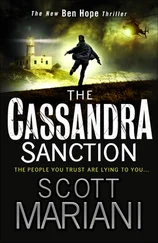So strong were the influences of that time that even up to 2020 the tendency of architectural design was to crouch. Hardly any mass of buildings erected between 1945 and the end of the century lifts up its head and looks the world in the face. That period has been called, not unjustly, Second Egyptian. And this was so in spite of the multiplying opportunities for grace and lightness afforded by the supersession of steel frame buildings by the strong and flexible neo-concrete materials that were already available. How timidly they were used! We grovel no longer because we are ceasing to fear each other. The soaring, ever improving homes in which we live to-day would have sent our great-grandfathers scurrying to their cellars in an ecstasy of terror.
7. The Great War of 1914-1918
Table of Contents
There is a monstrous tedious accumulation of records concerned with the World War. The Catalogue of Historical Material stored at Atacama gives a list of 2,362,705 books and gross files, up to date, and of these over 182,000 deal exclusively or largely with the causation of the war. Nothing could bring home to the student the profound difference in mental equipment between ourselves and the men and women of that period than a visit to the long silent galleries of that great library of dead disputes and almost completely forgotten records. He will see hardly a visitor along the vistas of that shining framework of shelves; a quiet cleaner or duster perhaps will be visible, scrutinizing the condition of the material, or a young revisionist student patiently checking some current summary — or a black cat. For the rest, above, below, to right and left is a clean and luminous stillness; papers at rest.
In one large section of this sere honeycomb the student will find the records of the “war guilt controversy” that agitated the world for decades after the Peace of Versailles. Let him draw out a seat anywhere and take down a file or so at hazard and turn over its pages. He will be able to read almost all of it nowadays, whatever the original language, because practically all the collection has now been interleaved with translations into Basic English. And it will seem to him that he is reading the outpourings of lunatics, so completely have the universal obsessions of that time been exorcized since.
Had “Germany” planned the war? Was “France” the guilty party? Had “Britain” much to answer for? With difficulty will the student let down his mind into the fantastic world of extinct imaginations in which these strange personifications, as monstrous and incredible as the ancient gods of India, were treated as real and morally responsible individuals, hated, trusted, feared and loved. The war was, in immediate fact, an aimless and fruitless slaughter upon the altars of these stupendous deities, the wounding and mutilation of perhaps twenty million human beings, and a vast burning-up of material wealth. In the crazy fancy of our ancestors it was a noble and significant struggle. Happily we need not revive their craziness here. The question of “war guilt” was never settled. It ceased to be pursued, it was neglected, it floated away into the absurd, and little but those three hundred feet or so of forgotten books and gross files remain to testify to its vanished importance.
The causation of the struggle was, indeed, perfectly simple. It arose naturally and necessarily from that irregular and disproportionate growth of human appliances as compared with the extension of political and social intelligence we have already described.
The new means of communication and transport, and the new economic life which demanded the products of every zone and soil for its purposes, were necessitating the reorganization of human affairs as a World-State, and since the world was already parcelled up among sixty-odd competing sovereign governments there were only two possible courses open to mankind, either to arrange the coalescence of these governments by treaty and rational arrangements to meet the new need, or to allow a steadily intensified mutual pressure to develop into more or less thinly disguised attempts at world conquest. In the decades before the war the British, French, German, Russian, Japanese and American systems were all, as the word went then, “imperialist” — all, that is, attempting to become World-States on a planet on which obviously there was room only for one single World-State. Nothing of the sort had been apparent when the methods of European statescraft had been devised. These vaster possibilities had yawned open afterwards. The eighteenth and nineteenth centuries were centuries of small restricted wars for limited advantages. In the twentieth century the scale of war expanded beyond any limit and the advantages to be won by it disappeared. But the politicians and diplomatists played their time-honoured game against each other with a sort of terrified inevitability. They were driven; they had no control, or at least none of them seemed to have had the vigour and imagination to attempt a control. They were driven by the economic necessity we have explained in the previous section. They had to arm preposterously. They had to threaten. They had to go through with the business.
These forces account for the outbreak and universality of the Great War, but they do not account for its peculiar frightfulness. For that it is necessary to realize that though governments expanded only against an enormous pressure of mutual restraint, no limitations had been set to the hypertrophy of financial and industrial enterprises. These last were under the sway of a relentless and unrestrained progress; they expanded, invented, urged and sold; they brought weapons of a strange and terrible effectiveness to the settlement of what were in comparison small and antiquated disputes. To that hypertrophy of the armourer we will return presently, because the Great War was really only a first revelation of this particular disproportion between economics and politics, and the evil still went on in an exaggerated form after the formal conclusion of the struggle at the Peace of Versailles (1919). But let us first tell what needs to be known of the details of the Great War.
How little that is now! There is a vast literature both of fiction based on experience and of personal reminiscence about it, and some of it is admirably written; almost any of it may be read for interest and edification and hardly any of it need be read with scholarly precision. The picture of the outbreak of the war still touches us. There was a curious unconsciousness of the grossness of the menace in events, even on the part of myriads doomed to suffer and die in a few months’ time. Many of the stories told begin with a holiday party or a country-house gathering or some such bright setting. The weather that August (1914) was exceptionally fine.
The details of the struggle itself were as horrible and distressing as they were inconsequent, and there is no need whatever for anyone but the specialist to master their sequence in detail. The old-fashioned history, with its lists of names, dates, battles and so on, was designed rather to supply easily marked material for examinations than to give any sense of the historical process. Examinations have long passed out of educational practice; they have gone to join the “globes” and the abacus, the slate and the cane in the scholastic limbo, but their memory is preserved in the popular game of “examination papers”, when people write down as fast as they can and as much as they can about some suddenly selected subject.
Few of us could write even a brief account now of the World War. The names of such generals as Haig, Kitchener, French, Joffre, Foch and Ludendorff, to take names at random, and such battles as Tannenberg, the Marne, the Somme, Paschendaele, the Falkland Isles, Jutland and so forth, mean nothing and need mean nothing to the ordinary citizen to-day. He does not know whether French was really French or not, nor whether Foch was a Frenchman or a German. He inclines to the latter view. He does not know who won or lost these conflicts and he does not care. He has not even a sporting interest in it. They were not lively fights. Nearly all the commanders concerned had dull and unattractive personalities and the business was altogether too unwieldy for them. Most of their operations were densely stupid, muddled both in conception and execution. One would as soon listen to a child reciting not very accurately and at endless length the deals and tricks of some game of cards it has played, or imagines it has played, as read their memoirs — packed as they too often are with self-exculpation, personal resentments and malice. Faint, faded, immense and far-off tragedies, these struggles that were to have astounded posterity have already gone far towards complete effacement in any but a few specializing minds, are hardly more vivid now in our collective consciousness than the battles of the Peloponnesian War — or the campaigns and conquests of Tamerlane. They had nothing of the primary historical importance and strategic splendour which have restored the gigantic military conceptions of Genghis Khan to an integral place in our ordinary educational curriculum.
Читать дальше











